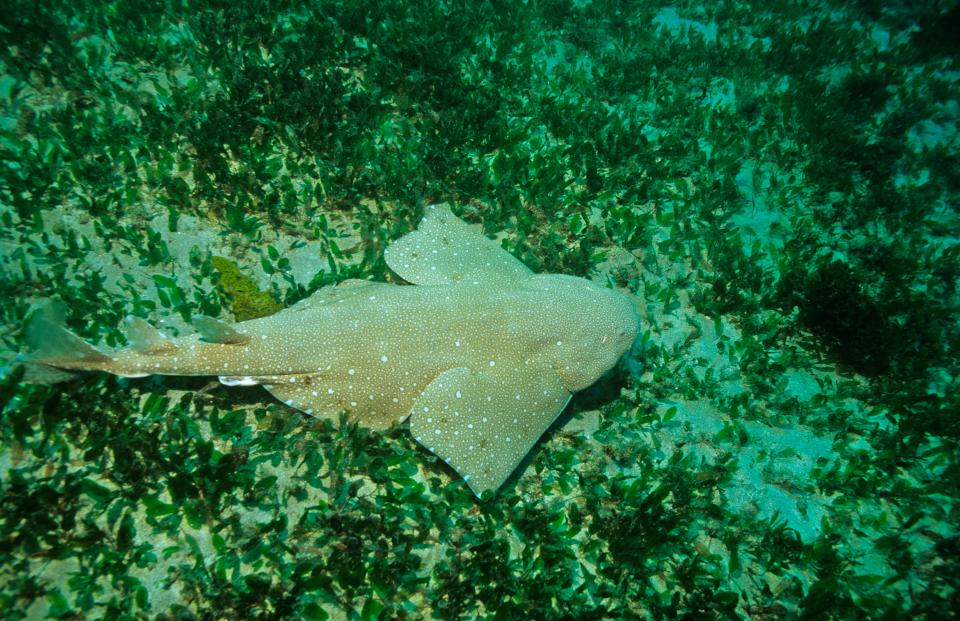Angel shark: one of world's rarest species spotted near Wales
Fishermen spot endangered animal in Cardigan Bay and Bristol Channel

A free daily email with the biggest news stories of the day – and the best features from TheWeek.com
You are now subscribed
Your newsletter sign-up was successful
One of the world’s rarest sharks has been spotted off the coast of Wales.
The angel shark, a large flat species which resembles a stingray, “is listed as critically endangered and was previously only reliably spotted around the Canary Islands”, reports The Independent.
But after a six month study led by the Zoological Society of London (ZSL) and Natural Resources Wales, a series of sightings by fishermen in Cardigan Bay, the Bristol Channel and north of Holyhead suggests the angel shark is living in UK waters.
The Week
Escape your echo chamber. Get the facts behind the news, plus analysis from multiple perspectives.

Sign up for The Week's Free Newsletters
From our morning news briefing to a weekly Good News Newsletter, get the best of The Week delivered directly to your inbox.
From our morning news briefing to a weekly Good News Newsletter, get the best of The Week delivered directly to your inbox.
Wales could be a key habitat for the critically endangered shark, which is from “an ancient family of shark that hasn't evolved much in tens of millions of years”, says The Sun.
“If we lose the angel shark, we lose a really important lineage of evolutionary history that we can't get from any other shark species,” Joanna Barker, of the ZSL, told the BBC.
So far, the team's evidence is based on sightings by fishermen, but dives planned for later this year will look for more direct evidence.
"What we really want to try and understand is what sort of numbers are we talking about and where are their important habitats, because there could be some really critical areas for angel sharks in Wales," Barker said.
A free daily email with the biggest news stories of the day – and the best features from TheWeek.com
Of particular interest to scientists is whether the sharks are travelling between the Canary Islands – or somewhere else – and Wales, or living in British waters all year round.
The unusual shark is especially valuable for scientists “because it represents a completely different evolutionary process compared to other species”, says The Independent.
Somewhat unique in the maritime world, the shark’s bodies are broad and flat to allow them to stay on the ocean floor, half-buried in sand, waiting for prey to swim near them.
The shark “was clearly a prize catch in the 1970s and 1980s, before it became a protected species”, says the BBC but in recent years the angel shark’s numbers have dropped sharply.
Additionally, researchers worry that fisherman and others who do come across it are reluctant to report sightings and accidental catches.
Ben Wray, a marine ecologist at Natural Resources Wales, said when the project was launched last year anyone could come forward without worrying about getting in trouble.
“We want to dispel that feeling and let people know that it’s fine to come forward and record these sightings,” he said.
“This data will be vital in building a clearer picture of the status and ecology of angel sharks in Wales as well as informing the Wales angel shark action plan, which we hope will help guide the project towards success.”
The project is about to go on a tour of Welsh coastal communities to raise awareness of the special species.